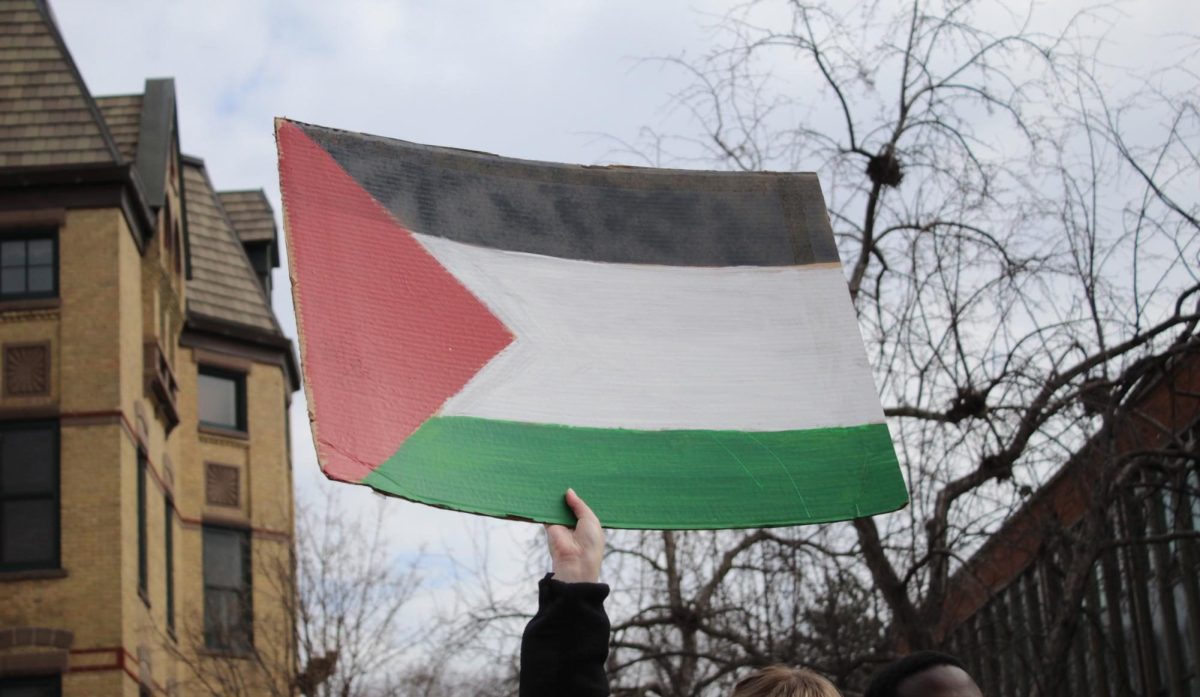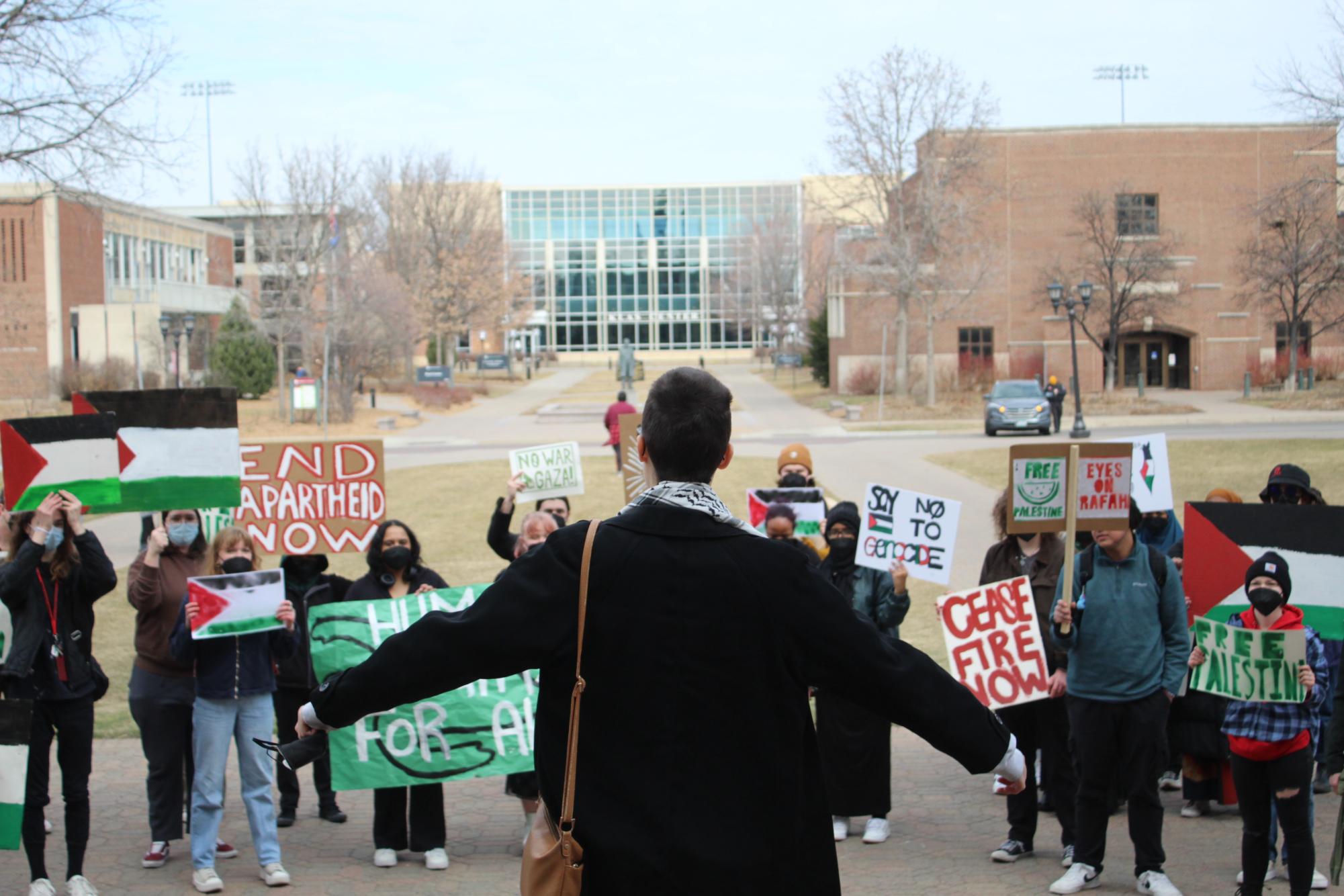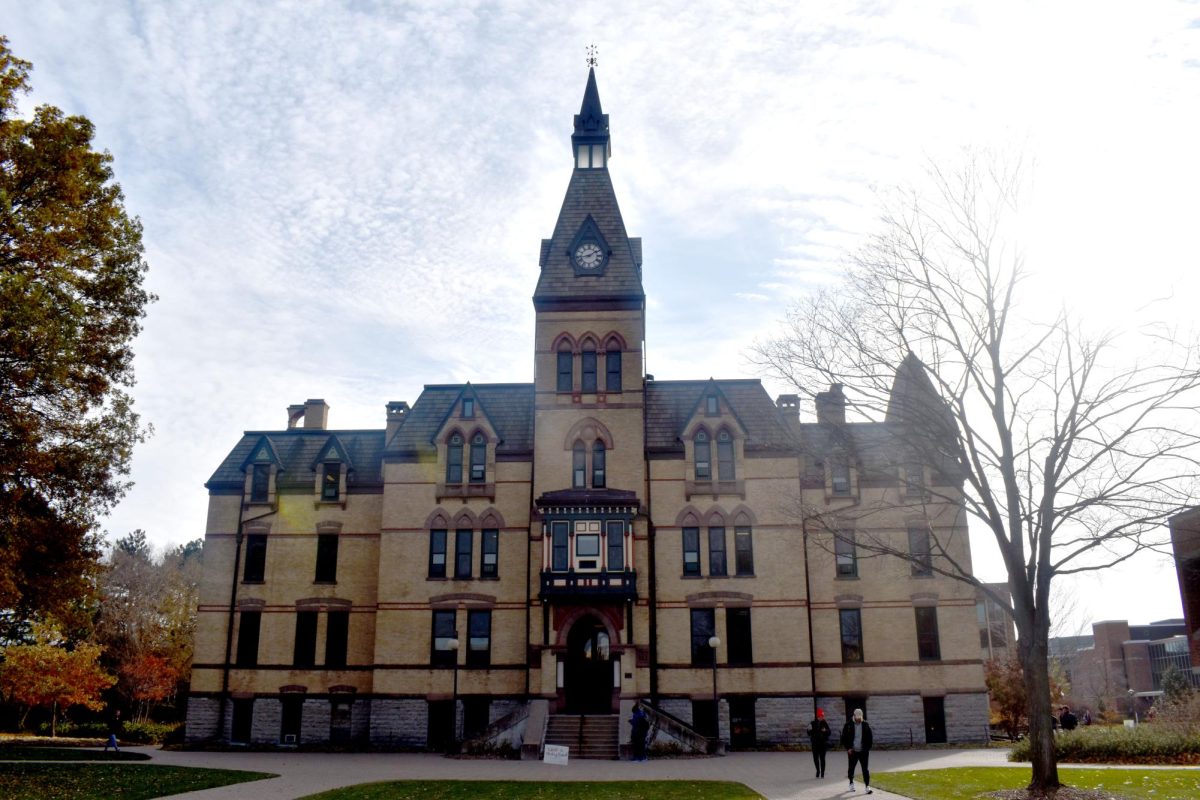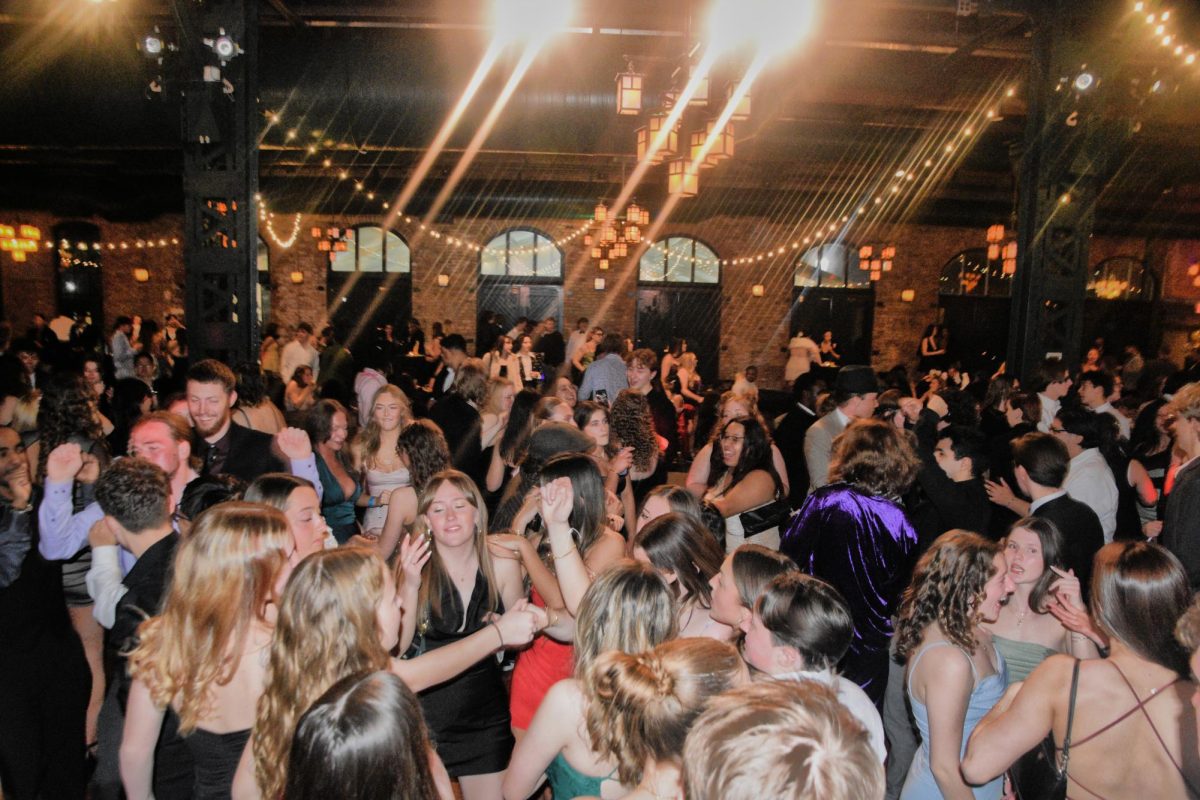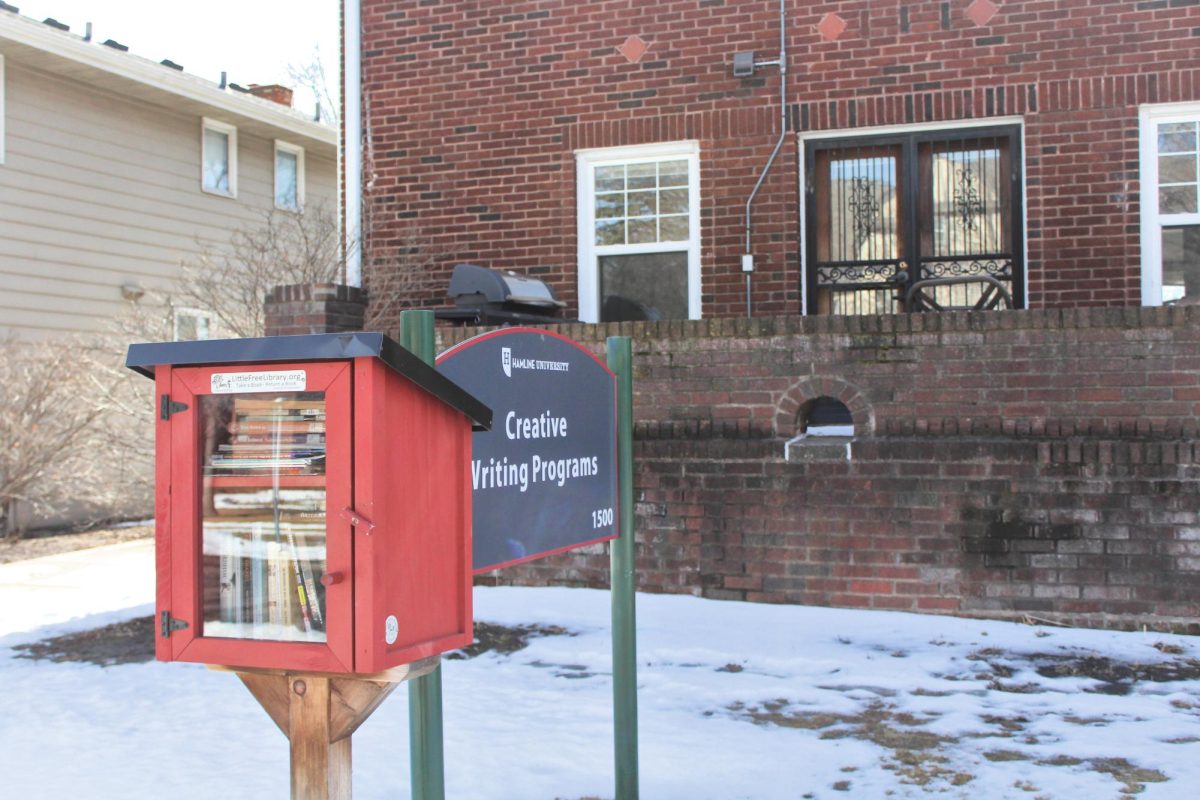Hamline students gathered on campus to march, chant, give speeches and display signs, joining the mounting pressure calling for a ceasefire in Gaza.
Hamline University students affiliated with the Students for Justice (SFJ) coalition staged the demonstration during conversation hour on Thursday, March 7, offering a plan of action for students to advocate for a free Palestine. A speaker at the event — as well as a post on the SFJ Instagram account — stated that these protests are planned to continue every Thursday until further notice. Additionally, a student walkout is planned to take place at 11:30 a.m. on Monday, March 18, the first day of classes following Hamline’s spring break.
As students gathered in front of Anderson Center, the advocacy group distributed signs as well as KN95 masks for both COVID-19 safety and anonymity. A procession of 55 protestors marched the length of campus from Anderson to Klas Center before turning back and coalescing in front of Old Main, Hamline’s central administrative building. Hamline Public Safety patrol cars blocked Hewitt Ave from oncoming traffic, allowing protestors to cross the road safely and without interruption.
Using a microphone and a portable speaker, a few students delivered impassioned speeches, calling for peace and condemning those who enable the conflict to continue.
“We will not live in fear of speaking up against injustice,” one student speaker said. “We will not live in fear of what might happen to us here because others are too cowardly to speak up.”
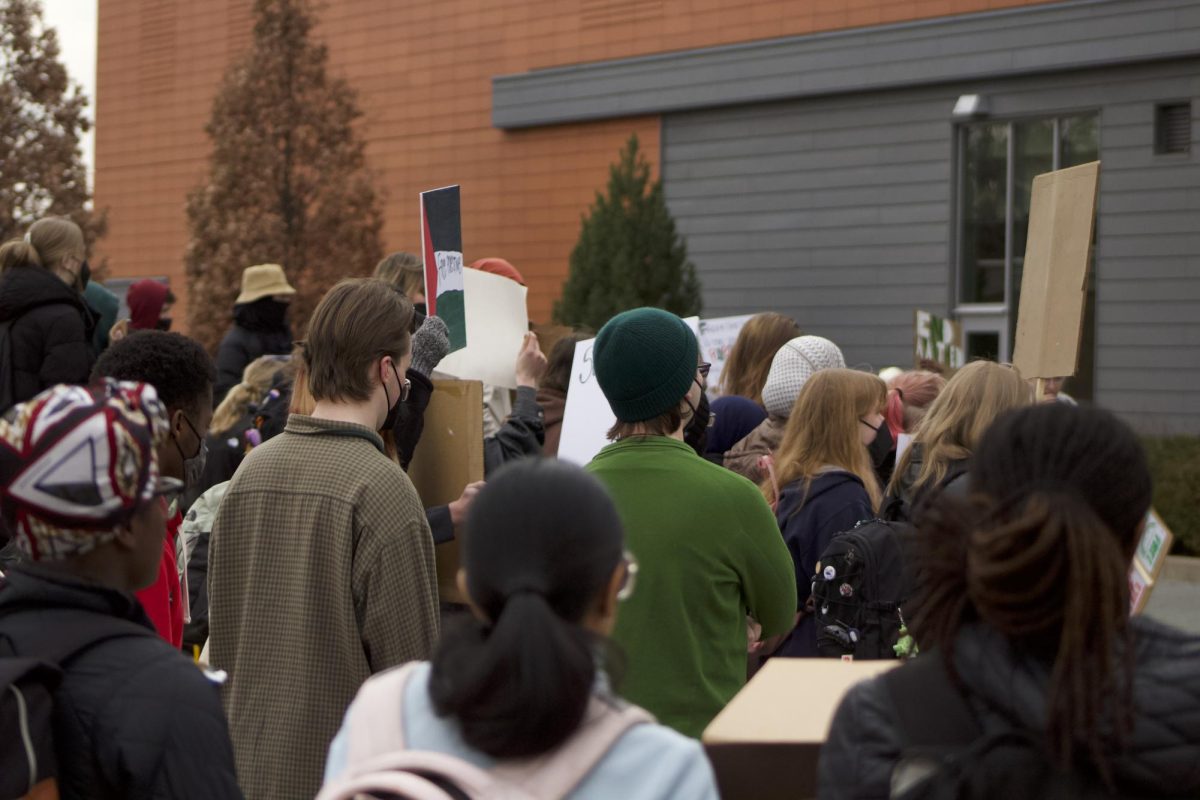
Some had close, personal connections to people in Gaza whose lives have been cut short or forever changed.
“We must hold each and every member in this community accountable in educating and advocating for a lasting ceasefire,” the student speaker continued. “This includes your staff. This includes your roommates. This includes the people you sit with and walk around this campus with.”
Another student speaker invited a brief statement from Dean of Students Patti Klein-Kersten.
“You have the right to express yourself, you have the right to gather and you have the right to protest,” Klein-Kersten said. “I am here to support you in being able to do that.”
Klein-Kersten emphasized that Hamline’s policies allow student groups without a formal charter to reserve spaces and plan safe protests by communicating directly with the Dean of Students office.
The procession returned to Anderson Center to chant as students entered and exited the building, growing to at least 70 protestors as more students joined their ranks.
Students on campus are not alone in wanting to see a tangible change in their communities surrounding the U.S.’s support of Israel.
On Super Tuesday, March 5, the date for primary elections in many states, an unprecedented 18.5% of voters in Minnesota’s Democratic primary chose “uncommitted” as their preferred presidential candidate. This comes as part of a nationwide effort to oppose President Biden’s handling of the conflict in Palestine and Israel. Several protestors confirmed that they had voted “uncommitted” this week for that reason, and many of their chants called attention to the inaction of leaders in city, state and federal government.
“I think it was a really good representation of how upset Minnesota is,” senior and Hamline Undergraduate Student Congress (HUSC) External President Travis Matthews said, standing near the gathered protestors. “I think [the “uncommitted” voting campaign] really showed how much Minnesotans care about international humanitarian crises and how we want to show up in this space. […] I was really proud of Minnesota.”
On Wednesday, March 6, the City Council of St. Paul unanimously passed a resolution “calling for an immediate and permanent mutual ceasefire in Israel and Gaza.” This follows Feb. 28 St. Paul City Council meeting in which City Council President Mitra Jalali adjourned before councilmember Nelsie Yang could introduce a resolution calling for a ceasefire, which prompted protests and boos from the audience with Yang calling the abrupt adjournment “undemocratic.”
“What do you plan to do after this?” one student speaker asked the group of students gathered at the steps of Old Main. “After learning more, will you continue to learn or will you sit idly by?”
